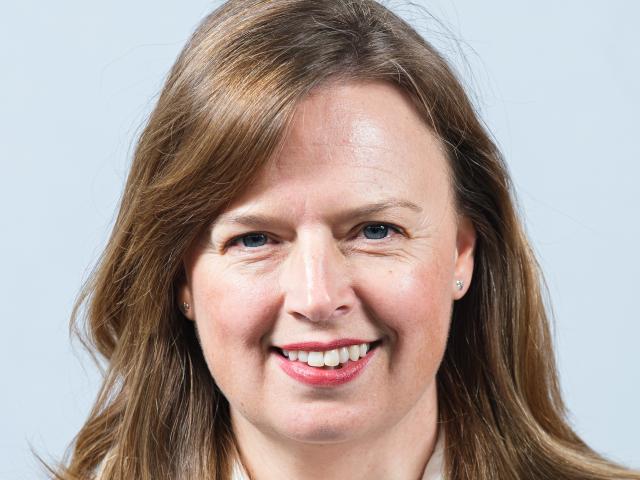
‘Hospital-at-home’ ultrasound test could improve care for older people at risk of heart failure
1 August
Health and Care Research Wales has funded research into whether an at-home ultrasound scan could improve the quality of care for older people at risk of heart failure.
Dr Emma Rees, Associate Professor of Healthcare Science at Swansea University and a member of the Health and Care Research Wales Faculty, is researching the impact of nurses adding a focused scan of the heart and lungs during their home visits to older people in the Neath Port Talbot area.
Dr Rees has also been selected for this year’s highly sought-after Welsh Crucible development programme. This brings together researchers from across Wales for a series of workshops exploring how collaboration can help tackle the research challenges Wales is facing and enhance the impact of their own studies.
Heart failure is a common cause of breathlessness in older people, but it can be caused by a number of long-term conditions. Current in-home tests lack accuracy for making a specific diagnosis, meaning individuals may need to attend several hospital appointments. This can be particularly difficult for older people who may be more frail, have mobility problems or dementia, or are living in care homes.
Dr Rees’ research examines whether adding an ultrasound scan to the existing examination during a home visit improves the ability to accurately determine the cause of breathlessness. Dr Rees said:
“Hand-held ultrasound scanners are already used at the bedside in emergency medical settings. We believe that nurses could use this technology with older people in community settings to make better decisions about whether heart failure is the probable cause of the breathlessness.
“A more timely diagnosis of heart failure, with early specialist advice and treatment for those who need it, may help to reduce the number of people being rushed to hospital because they are critically unwell. This could help to relieve some of the burden on A&E services and ambulances.”
Annette Davies is the lead advanced clinical practitioner in the Neath Port Talbot Acute Clinical Team. She was trained to undertake point-of-care ultrasounds as part of the study and said feedback from patients was “very positive”.
“This is an extra tool in our toolkits to confirm a diagnosis. You can see so much more detail and examine parts of the heart that you can’t normally. We saw around 30 patients and they all appreciated being able to have the test at home.”
Dr Firdaus Adenwalla is a consultant physician with the Neath Port Talbot Acute Clinical Team. He also believes the study demonstrates the benefits of such at-home testing:
“Shortness of breath can be for a variety of reasons. Being able to do this investigation in the home is very useful to rule in or rule out a cardiac problem. You are then able to refer a patient earlier and in a more targeted fashion.
“This study will go some way in reassuring colleagues in primary and secondary care that this sort of technology can be used safely in the community.”